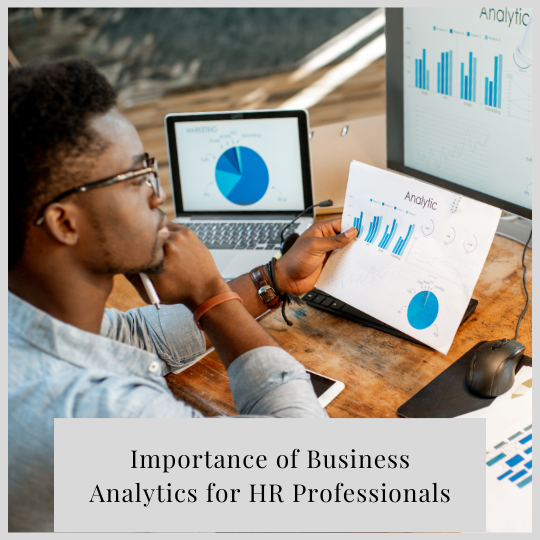Business analytics plays a crucial role in transforming the field of Human Resources (HR) by providing valuable insights and data-driven decision-making capabilities. HR professionals are increasingly recognizing the importance of leveraging analytics to enhance their strategic contributions to the organization. Here are some key reasons why business analytics is essential for HR professionals:
- Talent Acquisition and Recruitment:
- Analytics helps in optimizing the recruitment process by identifying the most effective channels for sourcing candidates.
- Predictive analytics can assist in forecasting future talent needs and creating talent pipelines.
- Employee Engagement and Retention:
- Analyzing employee data can reveal patterns related to engagement and satisfaction, enabling HR to implement targeted strategies for improvement.
- Identifying factors leading to turnover helps in developing retention strategies and maintaining a motivated workforce.
- Performance Management:
- Analytics allows HR professionals to measure and analyze employee performance data, facilitating fair and objective performance evaluations.
- Insights from analytics can guide the development of personalized training and development plans for employees.
- Workforce Planning:
- HR analytics enables organizations to make informed decisions regarding workforce size, composition, and distribution.
- Identifying skill gaps and planning for future needs helps in building a more resilient and adaptable workforce.
- Cost Optimization:
- Analyzing HR data helps in identifying areas where costs can be optimized, such as streamlining recruitment processes or reducing turnover-related expenses.
- Efficient workforce planning based on analytics can lead to better resource utilization and cost savings.
- Diversity and Inclusion:
- Analytics can assist in tracking diversity metrics and assessing the effectiveness of diversity and inclusion initiatives.
- By identifying areas for improvement, HR can create strategies to foster a more inclusive workplace.
- Predictive Analytics for HR:
- Predictive modeling helps in forecasting trends and outcomes, enabling HR professionals to proactively address issues before they become significant challenges.
- Anticipating future workforce needs and trends allows HR to stay ahead in talent management.
- Employee Well-being:
- Analyzing employee well-being data, such as health and wellness program participation, can provide insights into the overall health and satisfaction of the workforce.
- HR can use these insights to design programs that promote a healthy work environment.
- Strategic Decision-Making:
- By leveraging analytics, HR professionals can contribute to strategic decision-making at the organizational level.
- Data-driven insights enable HR to align human capital strategies with overall business goals.
- Continuous Improvement:
- Regular analysis of HR processes and initiatives allows for continuous improvement.
- HR professionals can refine their strategies based on data-driven feedback, leading to more effective and efficient HR practices.
In conclusion, business analytics empowers HR professionals to move beyond traditional administrative functions and become strategic partners in organizational success. The ability to harness data for decision-making enhances HR’s effectiveness in attracting, developing, and retaining talent, ultimately contributing to the achievement of business objectives.


